Northern Ireland
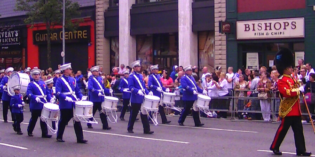
Book Review | Contentious Rituals: Parading the Nation in Northern Ireland by Jonathan S. Blake
In Contentious Rituals: Parading the Nation in Northern Ireland, Jonathan S. Blake offers a new examination of the complex phenomenon of Protestant parading in Northern Ireland, drawing on carefully compiled sociological and ethnographic data to argue that, in the words of his participants, what motivates the majority of paraders, musicians and spectators is not political, ethnic or religious chauvinism, but rather commitment to a longstanding cultural practice positioned as antipolitical. This is a nuanced and rich study, writes Nicholas Baker, that will be of great value to anyone interested in contemporary politics in Northern Ireland.

Matters of consent: the Withdrawal Agreement does not violate the Good Friday Agreement
John McGarry and Brendan O’Leary write that, contrary to the DUP’s claims, the draft Withdrawal Agreement does not violate the provisions of the Good Friday Agreement when it comes to consent. Instead, the proposals regarding Northern Ireland are reasonable and balanced.

Are the DUP for turning? When the Union is perceived to be at risk, all options are on the table
The UK government’s latest attempt to push a deal through Parliament failed when the DUP withdrew support. Mary C. Murphy explains the DUP’s thinking and options. She writes that, while they can continue to pursue a strategy which is focused on revising the deal to their satisfaction, it is also possible that they could change tack completely and re-align their position in favour of the UK remaining in the EU.

Northern Ireland and the Withdrawal Agreement
Boris Johnson’s proposed withdrawal agreement with the EU, which Parliament votes on today, establishes different customs arrangements for Northern Ireland than for Great Britain, to avoid a hard border with the Republic of Ireland. Sean Swan explains how having differential arrangements for Northern Ireland and Great Britain is not novel, and is a reflection of long-existing realities in Northern Ireland’s governance. For them to have democratic legitimacy, though, the Northern Ireland Assembly needs to be reconvened.
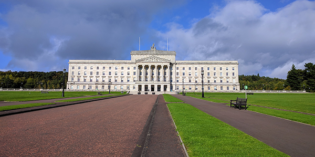
Governing without ministers: Northern Ireland power-sharing should be a priority for the UK government
Northern Ireland has been without a functioning Executive or Assembly since January 2017. Jill Rutter and Jess Sargeant detail the consequences, which would be particularly severe in the case of a no deal Brexit, and set out proposals for reform.
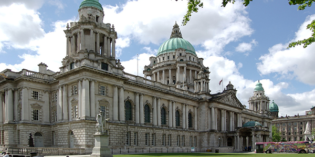
Three questions ahead of Northern Ireland’s local elections 2019
Northern Ireland votes in local council elections on Thursday, 2 May. These elections take place while the Northern Ireland Assembly remains dormant, the Brexit process raises seemingly unresolvable questions about the Irish border, and in the aftermath of the murder of journalist Lyra McKee. Jamie Pow previews the elections and outlines some key questions they highlight for Northern Irish politics.

‘The ability of the UK Parliament to override a measure made in any part of the United Kingdom is one of the mischiefs in the UK’s constitution that needs fixing.’ Why it is time to reform the Sewel Convention
The Sewel Convention, by which the UK’s government normally seeks the consent of the devolved legislatures on matters that come within their competence, is enshrined in legislation. However, writes Matthew Hexter, it remains too weak and a constitutional convention is needed to fundamentally alter the balance of powers between London and the devolved nations.
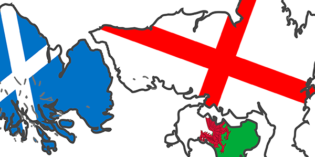
Schrodinger’s devolution and the potential for ongoing political instability after Brexit
Territorial governance in the UK has taken the form of ‘Schrodinger’s devolution’, where the devolved nations both have and have not experienced fundamental constitutional change. But Brexit highlights the need for exact decisions where ambiguity has so far existed, explain Mark Sandford and Cathy Gormley-Heenan.

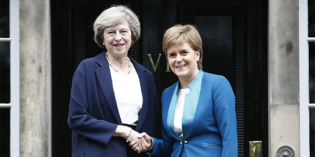

 Democratic Audit's core funding is provided by the Joseph Rowntree Charitable Trust. Additional funding is provided by the London School of Economics.
Democratic Audit's core funding is provided by the Joseph Rowntree Charitable Trust. Additional funding is provided by the London School of Economics.